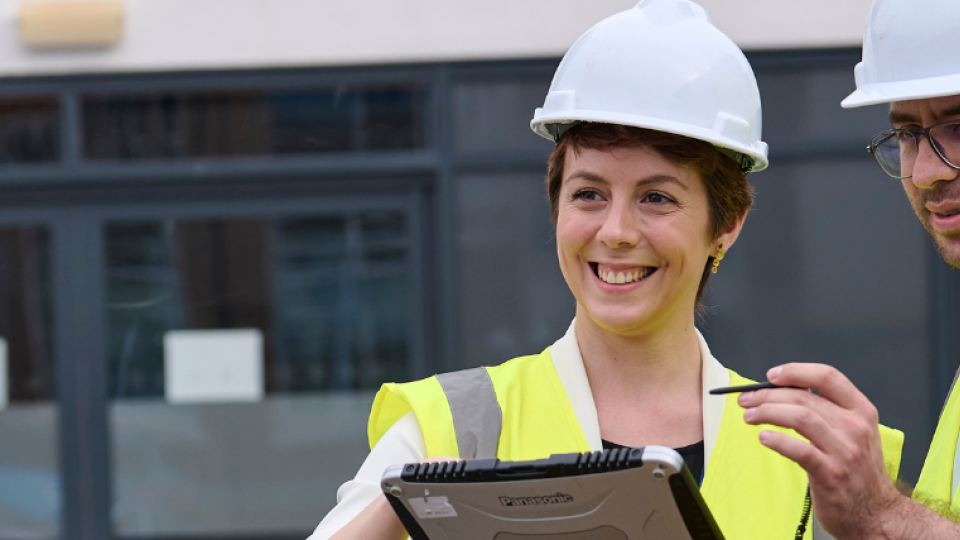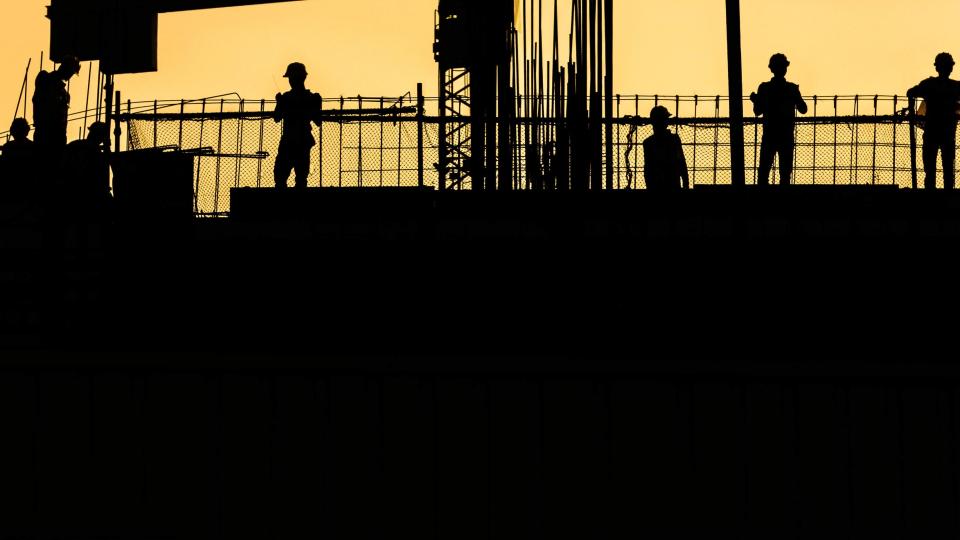
Civil and structural engineering
summary
The Civil and Structural Engineering Research Group covers a wide spectrum of research domains. These include the application of Artificial Intelligence (AI), computational modelling and structural design, structural simulation and blast analysis. Our research further delves into structural strengthening and rehabilitation, exploring a variety of methods alongside the integration of Building Information Modelling (BIM) into civil engineering practices.
Additionally, we focus on improving energy efficiency and building performance through computational modelling. Our comprehensive research scope also encompasses building defect pathology, the application of civil engineering surveying techniques and the procurement processes for infrastructure projects.
Current research themes
Our research areas include:
- Application of Artificial Intelligence (AI) in civil and structural Engineering
- Computational modelling and structural design
- Structural simulation and blast analysis
- Methods for structural strengthening and rehabilitation
- Integration of Building Information Modelling (BIM) in civil engineering
- Enhancement of energy efficiency and building performance through computational modelling
- Studies on building defect pathology
- Application of civil engineering surveying techniques
- Procurement processes for infrastructure projects
About the group
Our research in civil and structural engineering is increasingly focusing on the application of AI in the civil and built environment, alongside simulation and computational modelling. This includes not only the traditional areas of structural engineering but also more recent advancements in structural analysis, numerical modelling, reduction of embodied carbon and green design.
Additionally, the development and application of finite element and optimisation techniques for solving problems in structural mechanics form an integral part of our work.
Our research group maintains robust connections with the construction industry, including partnerships with Intelligent Building System Ltd and Consultants for Construction Innovation (C4Ci), benefiting from the expertise of highly qualified researchers. This team comprises chartered civil engineers and chartered surveyors who contribute significantly to our projects.
Activities within the group include providing technical research on advanced concrete design, producing book chapters and editing technical books.
The group has several PhD students working in civil, structure and construction topics:
The group has several PhD students working in civil, structure and construction topics:
-
Evaluation of structural performance under the blast loading
For buildings subjected to blast loading, structural failure can be categorised into local failure (direct blast effects) and progressive collapse (consequential effects). In direct blast effects, the intensive blast pressures create localised failure of structural elements such as exterior columns and walls.
Columns, and their behaviour, play a key role in these situations. Therefore, investigating the behaviour of columns under blast loading is very important in estimating the strength, safety and reliability of the whole structure.
When a building is subjected to blast loading, it experiences huge loading pressures and undergoes great displacement and plastic behaviour. To study the behaviour of an element under blast loading, in addition to elastic properties of materials, plastic and elastic-plastic properties of materials and sections are needed.
This research identifies the importance of elastic-plastic properties of sections and proposes criteria for choosing the best section and boundary conditions for columns to resist blast loading.
-
Comparative study of sustainable drainage systems
The use of sustainable drainage systems (SUDS) forms an important part of the requirement to conserve natural resources in an age of ever-increasing consumption.
This study explores the options available in the design of drainage systems, by virtue of a project to design two systems for a Greenfield site, with offices and car parking.
-
An evaluation of environmental assessment methods
After successive global environmental conferences in which national governments pledged to reduce carbon emissions, there is ever-increasing scrutiny on the construction industry.
This is because the energy used in the production of building materials, subsequently required to power a completed building, forms a substantial part of the overall carbon emissions generated by society.
The response from both public and private sector interests around the world has been to enhance the importance of environmental assessments, both of building methods and the finished product, almost in inverse proportion to the tolerance for energy waste.
-
Sustainable means of disposal for UK construction waste
The context for this research area is the ever-increasing environmental and regulatory requirements to reduce, reuse and recycle material formerly regarded as 'waste'.
Sustainable means of disposal for construction waste comprises two facets:
- environmental sustainability
- cost-efficiency.
These have hitherto been mutually exclusive since meeting 'green' standards of disposal have always been perceived as costing more than standard methods.
The research project evaluates the two main waste disposal methods in UK construction sites.
-
Impact of future climate change on UK building performance
Global demand for dwelling energy and implications of changing climatic conditions on buildings confront the built environment to build sustainable dwellings.
This study investigates the variability of future climatic conditions on newly built detached dwellings in the UK. Series of energy modelling and simulations are performed on ten detached houses to evaluate and predict the impact of varying future climatic patterns on five building performance indicators.
The study identifies and quantifies a consistent declining trend of building performance which is in consonance with the current scientific knowledge of annual temperature change prediction in relations to long term climatic variation.
The average percentage decrease for the annual energy consumption was predicted to be 2.80, 6.60 and 10.56 for 2020s, 2050s and 2080s timelines, respectively.
A similar declining trend in annual natural gas consumption was 4.24, 9.98 and 16.1, and that for building emission rate and heating demand were 2.27, 5.49 and 8.72 and 7.82, 18.43 and 29.46 respectively.
-
Government’s influence on the implementation of BIM
The government’s construction strategy requires construction projects for central government to implement level 2 Building Information Modelling as a minimum by 2016.
Since the strategy's publication, a number of specifications, plans and processes have been released. Government involvement in production includes being part of steering groups and explaining what they, as construction clients and occupiers of a huge number of built assets, need from the industry.
Department projects have also been used to trial new methods and provide feedback from both the client’s and the project team’s point of view. The government’s involvement has resulted in a coordinated response from an industry that is traditionally very fragmented and introduced a real impetus for changing the way the construction industry works, all the while embracing digital technology.
Contact us
If you are interested in pursuing industry-initiated PhD research, or if you wish to learn more about funding opportunities and application procedures, please contact Professor Ali Bahadori-Jahromi.
- School: School of Computing and Engineering
- Address: University of West London, London, W5 5RF, UK
- Email: ali.jahromi@uwl.ac.uk
Find out more about research degrees with the School of Computing and Engineering.
Find out more
-
Research Centres and Groups
Find out about our multi-disciplinary areas of expertise, PhD research, and teaching.
-
Research impact
Learn how our PhD research has helped communities locally, nationally and internationally.
-
The Graduate School
If you are interested in studying for a PhD or Professional Doctorate, the Graduate School is here to support your research.






